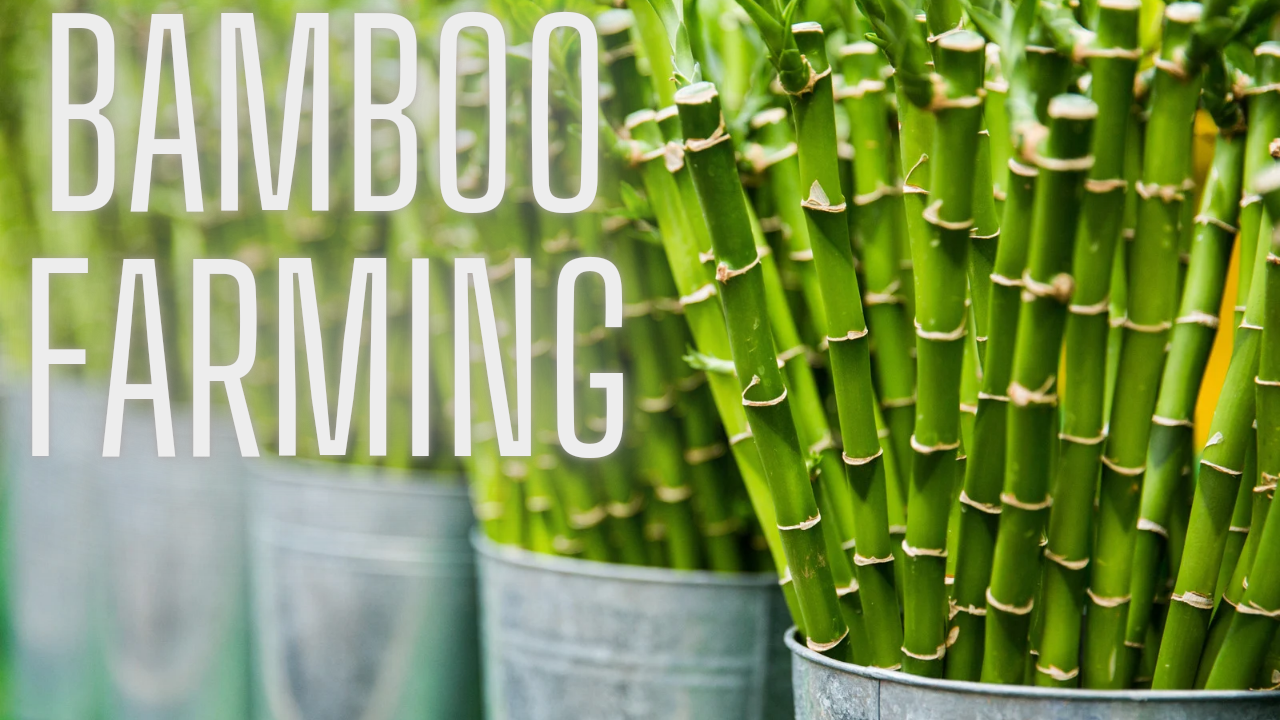Bamboo Farming: A Profitable and Sustainable Business Venture
Bamboo farming is gaining popularity worldwide as a sustainable, versatile, and profitable agricultural practice. Whether you’re interested in bamboo agri farming, bamboo commercial farming, or bamboo contract farming, this eco-friendly crop can generate significant income with the right approach. Bamboo is not only a fast-growing plant but also offers a wide variety of uses, from construction materials to food products, making it a lucrative opportunity for farmers and entrepreneurs alike.
 Why Bamboo Farming?
Why Bamboo Farming?
The demand for bamboo has skyrocketed due to its various applications. Bamboo is used in furniture production, construction, paper manufacturing, textile fibers, and food in the form of bamboo shoots. This makes bamboo farming for profit a highly attractive venture. It is also a renewable resource, growing up to three feet in a day depending on the species, and it helps reduce carbon emissions by absorbing more carbon dioxide than other plants.
Bamboo is ideal for commercial cultivation because it thrives in diverse climates and soil types, making bamboo plantation business accessible to a broad range of farmers. Whether you have a small or large plot of land, such as bamboo farming in 1 acre, you can scale your business based on your investment.
Bamboo Farming Business Models
There are several business models in the bamboo industry, ranging from bamboo plant farming to bamboo vertical farming and bamboo contract farming. Each model presents unique opportunities and challenges:
- Bamboo Agri Farming: Focused on traditional farming techniques, bamboo agri farming involves planting bamboo as a crop to harvest shoots, stems, and other byproducts. It’s a low-maintenance yet highly profitable farming method.
- Bamboo Commercial Farming: In this model, bamboo is grown on a larger scale for commercial purposes. Commercial bamboo farming is ideal for producing raw materials for various industries such as construction and manufacturing. Large-scale plantations are becoming a significant part of the bamboo industry as demand rises globally.
- Bamboo Contract Farming: Here, farmers grow bamboo under a contract with businesses or corporations that need a steady supply of bamboo for their products. Bamboo contract farming guarantees income for farmers and provides a stable supply for businesses. This model is popular for those who want to minimize risk and ensure consistent profits.

The Profit Potential in Bamboo Farming
The potential for profits in bamboo farming is immense. Bamboo is in high demand for various uses, and the market is expanding. Here’s a breakdown of different types of bamboo farming and their profitability:
Bamboo Farming for Profit
With proper management, bamboo farming can yield profits in a relatively short time. On average, a bamboo plantation business can become fully productive in 4-5 years, depending on the species. Growing bamboo for profit can generate returns from the sale of bamboo shoots, timber, and other byproducts.
Bamboo Farming in 1 Acre
Even a small farm of just 1 acre can yield a profitable bamboo crop. On an acre of land, you can plant approximately 500-600 bamboo plants, depending on the species. The revenue from bamboo farming in 1 acre can range from $10,000 to $30,000 per year, depending on the market price of bamboo and the products you sell.
Bamboo Plantation Profit
The profit from bamboo plantations is influenced by the species grown and the market demand. High-yield bamboo species like Beema bamboo and giant bamboo are particularly profitable, as they produce more biomass per acre. Beema bamboo farming, for instance, is known for high productivity and resilience, making it one of the best bamboo for farming in terms of profitability.
Bamboo Shoot Farming
The culinary demand for bamboo shoots adds another layer of profitability to bamboo farming. Bamboo shoot farming is popular in Asia and is expanding to other markets where bamboo shoots are considered a delicacy. This edible part of the plant can be harvested annually, providing a regular income stream.
Bamboo Varieties for Farming
Choosing the right bamboo variety is critical for success. Some of the best bamboo for farming include:
- Beema Bamboo: A high-yield, fast-growing bamboo variety popular for its strength and versatility.
- Giant Bamboo: Known for its size and sturdy culms, giant bamboo farming is ideal for timber production.
- Commercial Bamboo Varieties: Certain varieties are best suited for large-scale farming and industrial applications, such as construction materials and paper production.
Bamboo Plant Price for Farming
The initial investment in bamboo plants for farming can vary based on the variety and quality. Typically, the bamboo plant price for farming ranges from $1 to $5 per plant. Bulk purchases can reduce costs, making it more affordable to set up a plantation, especially if you are aiming for large-scale production.
Conclusion
Bamboo farming is an eco-friendly and highly profitable business. Whether you are interested in bamboo tree farming, bamboo plants agriculture, or bamboo vertical farming, the industry offers immense opportunities for growth and income. By selecting the right variety, such as Beema bamboo or giant bamboo, and choosing the right business model—whether it’s bamboo commercial farming or bamboo contract farming—you can capitalize on the growing global demand for bamboo.
With its fast growth, low maintenance, and various applications, growing bamboo for profit is one of the best investments in sustainable agriculture today.

